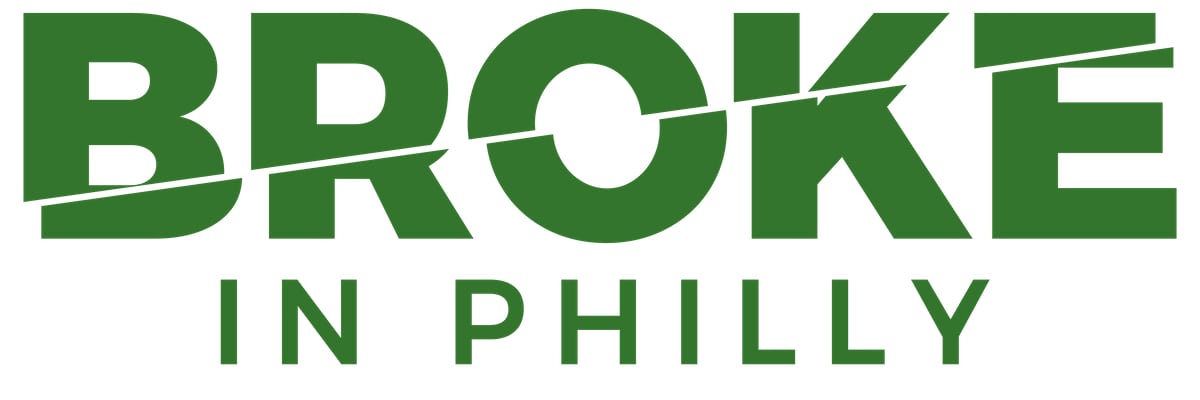Nearly a year into the COVID-19 pandemic that sent work and learning home for many, Comcast said Tuesday that it will double the download speed of its Internet Essentials service for low-income Americans to 50 Mbps and increasing its upstream speed to 5 Mbps, effective March 1.
This speed increase comes after months of criticism from around the mid-Atlantic region and beyond that the Center City Philadelphia-headquartered telecommunications giant must do more to bridge the digital divide in the regions where it operates — especially during the pandemic, when digital access inequities have been laid bare.
Internet Essentials has been used by 8 million people nationally since its 2011 launch, serving those who qualify for programs such as the National School Lunch Program, Medicaid and SNAP. The service currently costs $9.95 per month and offers a 25 mbps download and 3 mbps upload rate.
A spokesperson told Technical.ly that this increase is the sixth time Comcast has upped its Internet Essentials speeds since the start of the program. Since March 2020, Comcast has also added two months of free service to new customers who sign on during the pandemic, which more recently has been extended to any qualifying customer who signs up before June 30 of this year.
This expansion news raises the question: Is it enough?
Internet Essentials’ current speeds meet the minimum FCC requirements for high-speed internet. Comcast has also claimed that service at that 25/5 rate can allow for “three high-quality Zoom calls.”
But throughout the pandemic, families with multiple students using the service at once have themselves claimed they’ve had trouble with call quality — that the speeds offered are not strong enough to manage the demands of at-home learning. In January, Chase Roper, a Washington-based former Comcast call center rep, also went public with his frustrations with being asked to sell more expensive packages to low-income families when their slower speeds weren’t sufficient.
The Comcast spokesperson contended that these examples of technical issues are rare, and are often fixed when the company gets in touch directly with the family experiencing the issue.
I just quit working for Xfinity/Comcast. I want families to know that the special Essentials program they offer to low income households for 9.95/mo is only 25mbps and in almost every case, not an adequate speed for children to do their live “zoom” online class work.
— Chase Roper (@chase_roper) January 11, 2021
In Philadelphia, Comcast’s hometown, where more than a quarter of homes lack broadband, protesters (including one city councilperson) in August demanded that, among other things, the company increase Internet Essentials speeds, and that Internet Essentials services be free for the duration of the pandemic and not just the first two months of service. As of Tuesday’s announcement, it has met both of those.
In Baltimore, where 40% of homes in the city lack wireline internet access and one in three don’t have a desktop or laptop, students have called on both Comcast and the FCC to expand Wi-Fi access by offering high-speed broadband internet for all students, and move the conversation forward on internet as a human right.
After “is it enough,” there’s the broader question of what the corporation should do for the residents of the regions where it operates. Those in the proudly capitalist camp may say it fulfills its purpose as a for-profit company by delivering its services to its customers as promised, and by delivering value to its shareholders. But Comcast also exists amid a groundswell of calls for corporations to advance social good — such as breaking ties with politicians aligned with those threatening our democracy, for example. Such calls were made long before the pandemic and racial justice movement of 2020 clarified and widened society’s existing cracks, but these shifts boosted them.
Beyond Internet Essentials, Comcast has done other work to advance social good. A rundown of initiatives the corporation has launched during the pandemic to support low-income residents and other disadvantaged groups:
- Lift Zones, bringing business-speed Wi-Fi to hundreds of rec centers and community orgs in the DMV region, New Jersey, Philly, Delaware and elsewhere, with a goal to connect 1,000 Lift Zones by the end of 2021
- RISE, a three-year program supporting U.S. small businesses, with a special early focus on Black-owned businesses, affected by the pandemic via grants, marketing and tech updates
- Opened Internet Essentials to Philly students in need as part of the wider PHLConnectED initiative
- Committing more than $40 million to digital equity efforts, including tech-related nonprofits such as Per Scholas, Coded by Kids and Code for Philly, the local Code for America brigade that launched tech training fellowships last summer
- And more
These initiatives had made real impact for the orgs and people they serve.
“Transforming our Boys & Girls Clubs into Lift Zones has made a huge difference in the lives of the students we serve in Philadelphia,” said Lisabeth Marziello, president and CEO of Boys & Girls Clubs of Philadelphia, in a statement. “Many of the kids who come to our clubs either don’t have the Internet at home or they have it, but they can’t study at home for a variety of reasons and they need somewhere to go.”
Note that Comcast isn’t alone in offering a low-cost internet option: Charter, the country’s second-largest cable company, has Spectrum Internet Assist, and Cox, the country’s third-largest cable internet provider, has a program called Connect2Compete.
In the U.S., broadband is treated like something in between those familiar utilities like electricity and luxuries. It’s more like, say, a cable TV subscription. But advocates have said for years that broadband should be classified as a public utility, as it’s necessary to participate in much of 21st-century life. Even before this forced remote learning, six in 10 American eighth graders relied on the internet at home to get their homework done, per Pew Research. This year has shown just how shaky a modern education system is without widespread broadband access: If a students can’t load Zoom, they’re missing class completely.
So even as the push to expand connectivity is not new, the pandemic has raised awareness. And it shows how this issue touches education, economic mobility and more, leading to more unity around the calls for change.
“Today’s announcement shows that Comcast can improve its service for families and community members in need, at any time — and that the power of students, teachers, elders, people with disabilities, and Black and brown communities united can force even the biggest companies to bring us closer to making internet service a human right in this unprecedented pandemic,” said Devren Washington, senior policy organizer with Philly’s Movement Alliance Project (MAP), a regular Comcast agitator.
The Comcast spokesperson said, indeed, changes are always possible, but it takes considerable financial and infrastructure investment to make that change happen. They didn’t share how much the upgrade would cost the corporation, but noted that the changes won’t be in place until March because of the time required to implement them. The rollout should also be considered as part of Comcast’s ongoing commitment to improving its services and increasing its contributions to digital equity, they said.
So, is it enough? Not yet, according to critics. And the question isn’t going away.
“I am glad that Comcast has finally responded to community demands, but a year into the pandemic and with a generation of children having their education rely on internet access, it’s clear this is just the start,” said Philadelphia Councilmember Helen Gym, who protested alongside MAP in August, in a statement. “Doubling the speeds on Internet Essentials is an important step but it must be the first of many. Poverty must never be a barrier to learning. We will continue to push Comcast to ensure that Internet Essentials is as reliable and fast as any commercial internet service.”
We will continue to hold Comcast accountable. We will not be satisfied until all "data caps" are removed and until children can learn online for free during the pandemic.
We need competition and municipal broadband.
But today, let's acknowledge that Baltimore. Doesn't. Play…
— Zeke Cohen (@Zeke_Cohen) February 2, 2021
_
This story was edited by Technical.ly Assistant Editor Stephen Babcock.

Technical.ly is one of 20+ news organizations producing Broke in Philly, a collaborative reporting project on solutions to poverty and the city’s push toward economic justice.
Before you go...
Please consider supporting Technical.ly to keep our independent journalism strong. Unlike most business-focused media outlets, we don’t have a paywall. Instead, we count on your personal and organizational support.
Join our growing Slack community
Join 5,000 tech professionals and entrepreneurs in our community Slack today!

The person charged in the UnitedHealthcare CEO shooting had a ton of tech connections

Delaware students take a field trip to China using their tablets and ChatGPT

Northern Virginia defense contractor acquires aerospace startup in $4B deal


